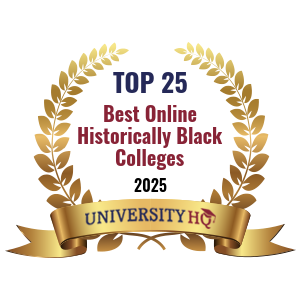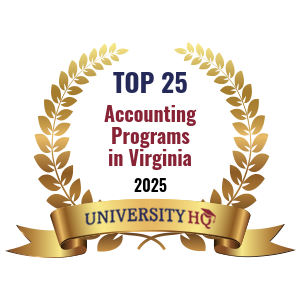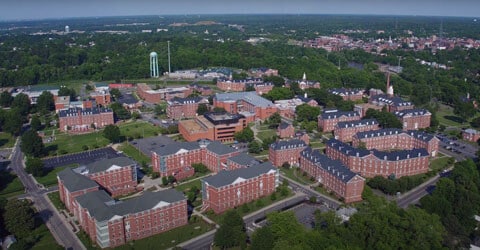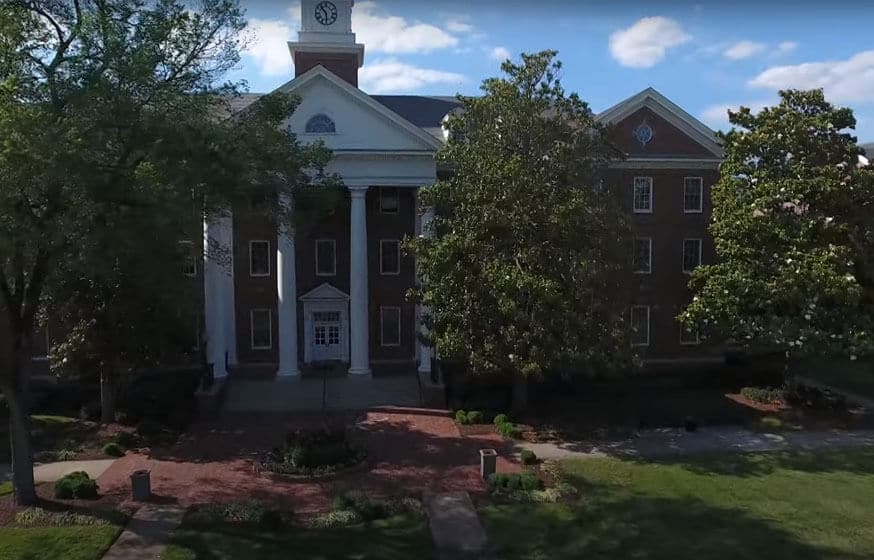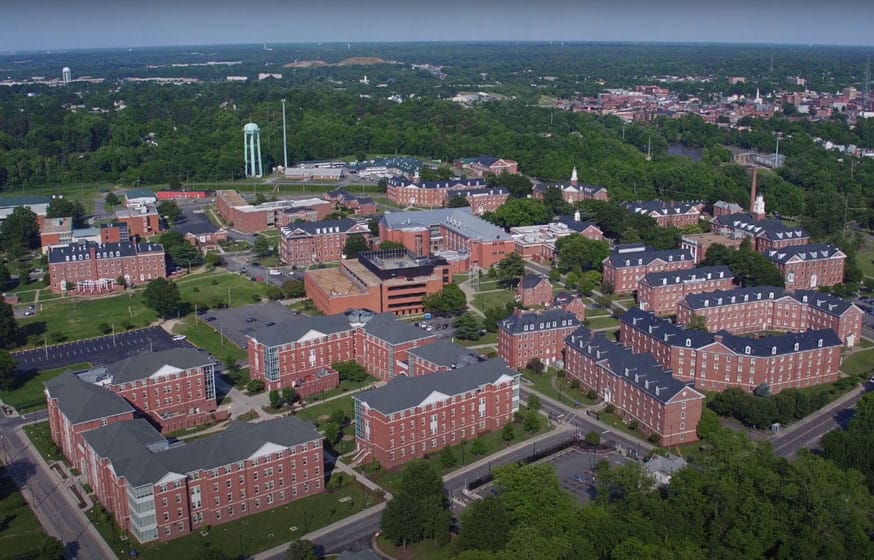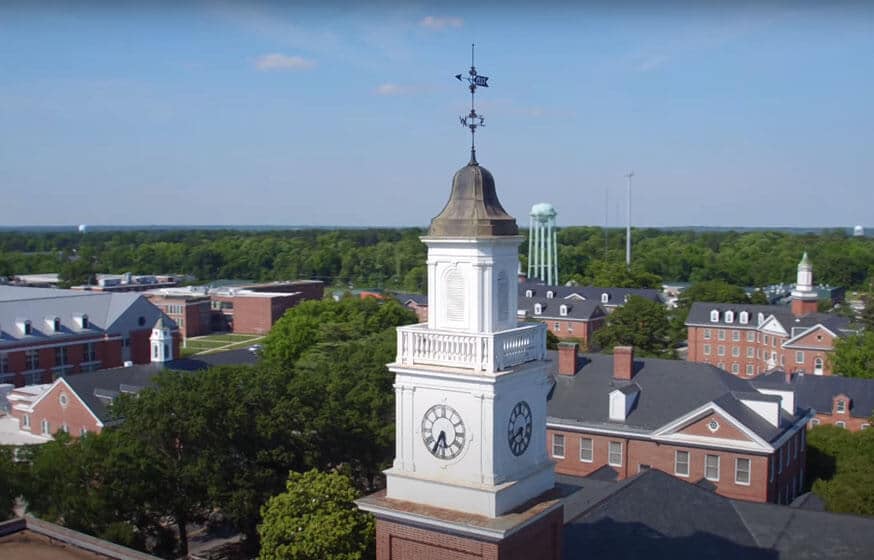Get Matched With Online Colleges
Virginia State University is spacious and full of green spaces. You’ll also find plenty of student parking throughout campus. If you visit and go for a walk through the campus, you should easily be able to figure out where your classes will take place. VSU does offer campus housing, and many people say it’s a good idea to opt for dorm life for a year or two. This way, you’re able to be involved in campus life and events. The student population isn’t very large: just under 4,400 students. The student-to-faculty ratio is 13 to 1.
Search All Programs
Overview of Virginia State University
VSU is a public university and you’ll be living in a large suburb called Petersburg, Virginia, just a half hour south of Richmond, so you won’t have any trouble getting off-campus for shopping or the occasional meal in a restaurant.
Students can graduate from VSU with bachelor’s, master’s, or doctoral degrees (research and scholarship), and post-baccalaureate certificates. VSU also offers Reserve Officers Training Corp (ROTC) opportunities to students who are interested in military service. Depending on your high school experiences, you will be able to request additional credits for successfully passing your AP exams; if you took part in a dual credit opportunity, you may also receive credits for this.
General Information
| School Type | Public |
|---|---|
| Campus Setting | Suburb: Large |
| Campus Housing | Yes |
| Student Faculty Ratio | 13:1 |
| Graduation Rate | 38% |
| Year Founded | 1882 |

Student Enrollment
Total Students4,365
4,025
340
Undergraduate Student
Male 1,691
Female 2,335
Graduate Student
Male 143
Female 197
Explore Map
Top Rankings For Virginia State University
Admissions
APPLICATIONS7,715
ACCEPTANCE7,329
Acceptance Rate95%
Enrollment 1,099
| Admissions | |
|---|---|
| Application Fee | NA |
| High School GPA | Required |
| High School Rank | Recommended |
| High School Transcripts | Required |
| College Prep Courses | Recommended |
| Recommendations | Required |
| SAT/ACT | Required |
| TOEFL (Test of English as a Foreign Language) | Required |
| Application Deadline | May 1 |
| Common Application Accepted | No |
Tuition Cost & Financial Aid
The total sticker price at Virginia State University is $23,673. This price rolls every fee and charge up together and includes in- or out-of-state tuition, room and board, books, supplies, and other various charges.
If you qualify for financial aid, you probably won’t have to pay that whole amount. Instead, you’ll pay the net price, which is the remaining cost to the student and their family after all financial aid is applied. At VSU, in a recent school year, this was $18,034.
Even so, this is the average, and what you will be responsible for depends heavily on how much financial aid you are eligible for. Virginia State tracks a net price by income because most financial aid is applied depending on your family’s annual income. In a recent year, if a family earned between $30,001 and $48,000, that amount was $16,410.
About 92% of beginning students qualified for financial aid at Virginia State. These students received an average of $6,552 in grants or scholarships. A lower percentage (62%) received $1,414, on average, in institutional grants and scholarships.
| Average net price | 2018-2019 |
|---|---|
| Net Price | $18,034 |
| Average Total Aid | $6,552 |
| Students Receiving Financial Aid | 92% |
| Room & Board | $11,544 |
Sticker Price
- Tuition In-State - $9,154
- Tuition Out-of-State - $20,909
- Books and Supplies - $1,300
- Room & Board - $11,544
- Other - $1,675
Academics
Whether you know what you plan to major in or not, it might be helpful to know what your options are at any school you are considering. The most popular degree offered at Virginia State University are business, management, marketing and related support services; communication, journalism and related programs; homeland security, law enforcement, firefighting and related protective services; biological and biomedical sciences; and psychology.
As you sign up for classes each semester, be careful that the sections you choose won’t conflict with other classes or with any job you may choose to hold off campus. VSU doesn’t offer opportunities for evening classes or distance learning.
The retention rate is a statistic that universities maintain every year that tracks the percentage of first-year students who return to Virginia State for their second year of classes. At VSU, this number is 65%. The 4-year graduation rate is 24% and the 6-year rate is 38%. However, these graduation rates do not take into account the students who transfer and graduate from another institution.
Retention
Rate
4 year
Graduation
Rate
6 year
Graduation
Rate
Student Population Total
Student Population 4,365
4,025
340
Most Popular Programs & Majors
(# of Diplomas Awarded by Subject)
| All Business Majors | 114 Total Graduates / 17% |
|---|---|
| Business Administration and Management, General | 54 Graduates |
| Marketing/Marketing Management, General | 22 Graduates |
| Accounting | 16 Graduates |
| Management Information Systems, General | 11 Graduates |
| Communication, Journalism, and Related Programs | 64 Total Graduates / 10% |
| Mass Communication/Media Studies | 64 Graduates |
| Homeland Security, Law Enforcement, Firefighting and Related Protective Services | 61 Total Graduates / 9% |
| Criminal Justice/Safety Studies | 61 Graduates |
| All Biological & Biomedical Majors | 57 Total Graduates / 8% |
| Biology/Biological Sciences, General | 57 Graduates |
| All Psychology Majors | 54 Total Graduates / 8% |
| Psychology, General | 54 Graduates |
| All Other Diplomas | 48% |
Outcome & Salary
College graduates earn more than high school graduates with no college degrees from the beginning of their careers. A graduate from Virginia State University earns an early-career salary of $46,900 and their mid-career salary goes up to $80,200.
You can compare this to the national average salary of a high school graduate, which is $38,792. Their 10-year projected income is $387,920 and their 20-year projected income is $775,840. That’s quite a difference.
A VSU graduate’s 10-year salary earning potential, based on the income numbers mentioned previously, is $591,860. Their 20-year earning potential goes up to $1,393,860. Now, if you subtract the 4-year cost of education, an average of $72,136, their 10-year projected return on investment (ROI) is $519,724 and their 20-year projected ROI is $1,321,724.
| Graduates Salary | |
|---|---|
| College Grads Early Career Salary | $46,900 |
| College Grads Average Salary | $59,186 |
| College Grads Mid Career Salary | $80,200 |
| Return on Investment (ROI) | |
|---|---|
| 10 Year Salary Earnings Potential | $591,860 |
| 20 Year Salary Earnings Potential | $1,393,860 |
| Cost of Education (Net Price) 4 Year | $72,136 |
| 10 Year Projected ROI | $519,724 |
| 20 Year Projected ROI | $1,321,724 |
| No College Education Salary Comparison | |
|---|---|
| National Average Salary | $38,792 |
| 10 Year Projected Income | $387,920 |
| 20 Year Projected Income | $775,840 |
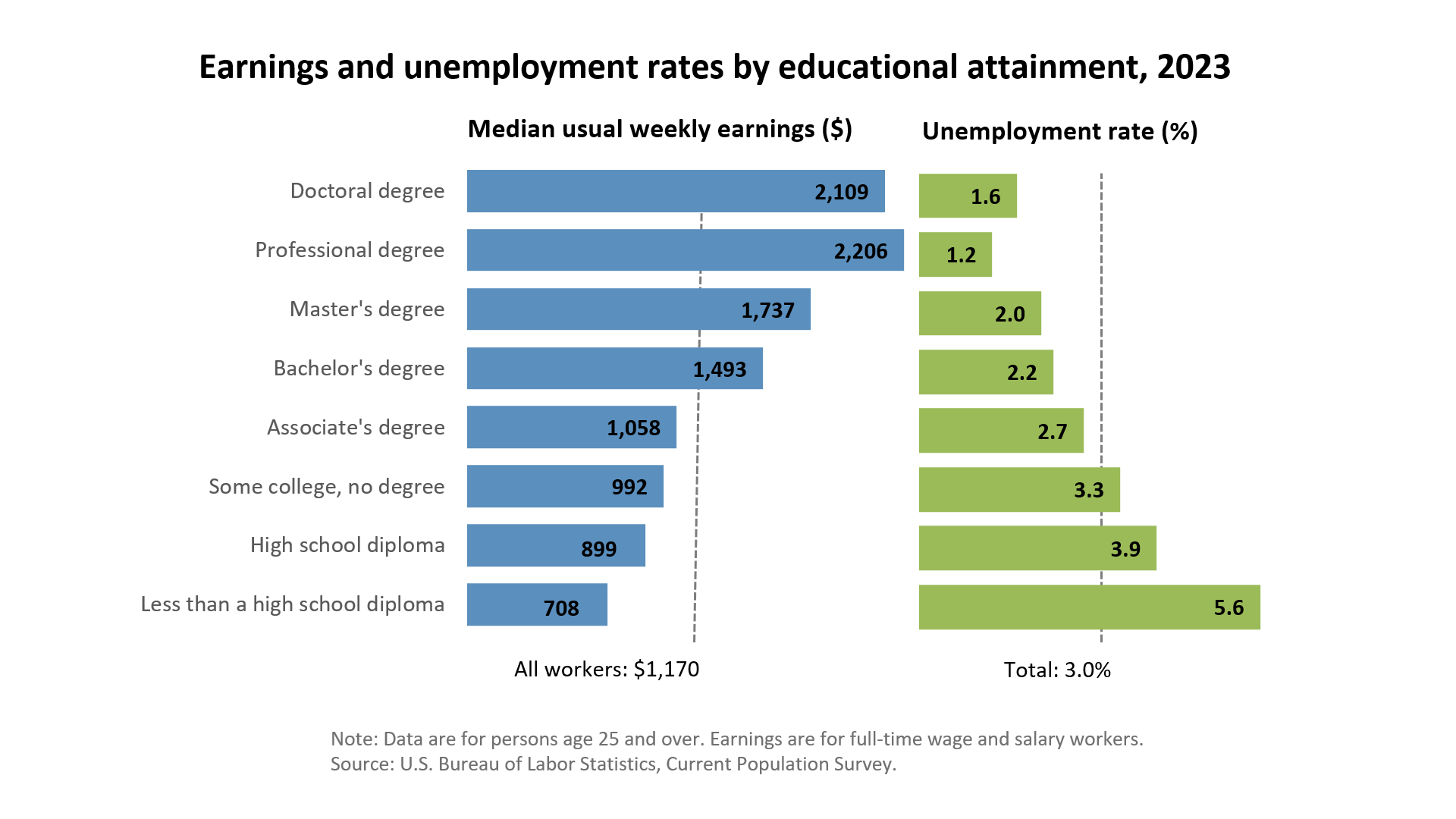
Related Top College Resources
Search All Programs



